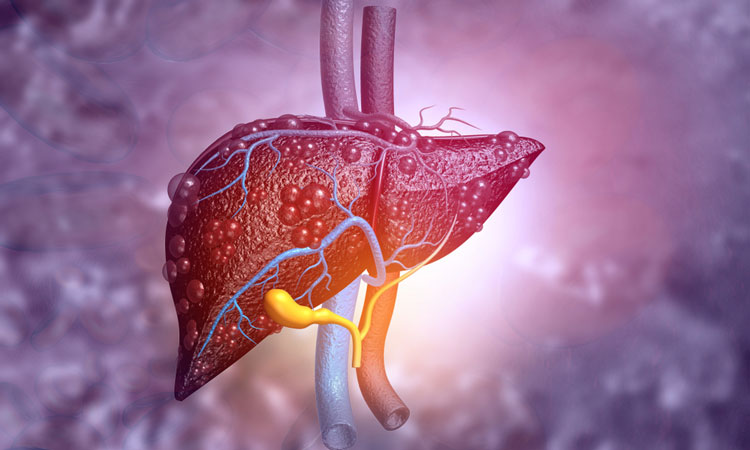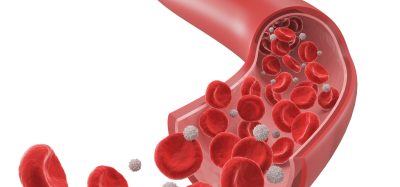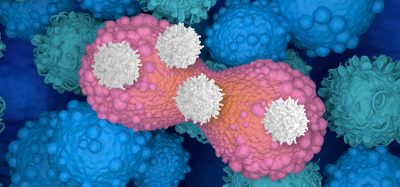Biomarkers to detect and prevent liver cancer
Posted: 31 October 2018 | Iqra Farooq (Drug Target Review) | No comments yet
An increase in the expression of sugar-burning ‘glycolytic’ enzymes in precancerous cirrhotic livers has been identified and could be used as a biomarker…


Liver cancer claims the lives of over 700,000 each year and is the second leading cause of cancer-related deaths worldwide. Due the nature of the cancer, it is usually detected too late to be cured.
Results of a new study show a huge increase in the expression of sugar-burning ‘glycolytic’ enzymes in precancerous cirrhotic livers. This increase has been associated with a significantly higher risk of developing hepatocellular carcinoma (HCC), a main type of liver cancer, and could be used as a biomarker to identify those at risk of malignancy.
In cirrhosis, chronic damage caused by alcohol, obesity or the hepatitis virus B or C leads to the scarring and formation of regenerative nodules in the liver. High cell turnover in these nodules, with accumulation of genetic damage, can eventually produce cancerous cells.
Biomarkers are redefining how precision therapies are discovered, validated and delivered.
This exclusive expert-led report reveals how leading teams are using biomarker science to drive faster insights, cleaner data and more targeted treatments – from discovery to diagnostics.
Inside the report:
- How leading organisations are reshaping strategy with biomarker-led approaches
- Better tools for real-time decision-making – turning complex data into faster insights
- Global standardisation and assay sensitivity – what it takes to scale across networks
Discover how biomarker science is addressing the biggest hurdles in drug discovery, translational research and precision medicine – access your free copy today
“We know that 90 percent of all hepatocellular carcinoma cases start with liver cirrhosis,” explained study senior authors Dr Salvatore Papa of the University of Leeds and Dr Concetta Bubici of Brunel University London, UK. “So by pinpointing when cirrhosis progresses to cancer, we could improve early detection and treatment – with surgery, chemo and radiotherapy, but perhaps also with new treatments which reverse the transition.”
“We set out to find features of cirrhotic cells that might predict cancerous change,” said Dr Papa.
“Like virtually all cancers, highly-proliferating HCC cells seem to readjust their energy metabolism towards glycolysis, irrespective of oxygen availability.
“Given that cirrhosis is an inflammatory process, we decided to look at whether the metabolic shift to glycolysis is present already in cirrhotic cells — and whether this predicts progression to hepatocellular carcinoma.”
Dr Papa and his colleagues analysed ordinary, cirrhotic and cancerous (HCC) liver samples from patients followed up over 10 years following a liver biopsy.
“To have a complete overview of energy metabolism changes in HCC and premalignant stages of disease, we measured the expression of genes encoding enzymes involved in glycolysis and other metabolic pathways,” he said.
The research team identified that glycolysis-related genes, including hexokinase 2 (HK2), aldolase A (ALDOA) and pyruvate kinase M2 (PKM2), are expressed highly in HCC, and in cirrhosis as compared to normal liver samples.
“In other words: the shift to glycolysis occurs in the precancerous stage,” said Dr Bubici. “This suggests expression of glycolytic enzymes could be used as a new biomarker to predict the risk of later development of HCC in patients with cirrhosis.”
The team said that their study is preliminary, with further studies needed to establish whether these changes in gene expression come through glycolytic activity.
Despite this, the researchers concluded that the findings reveal a promising means to improve HCC survival through early detection and treatment.
The study was published in Frontiers in Cell and Developmental Biology.
Related topics
Biomarkers, Disease Research, Drug Discovery Processes, Research & Development, Screening
Related conditions
cirrhosis, Liver cancer
Related organisations
Brunel University London, Leeds University
Related people
Dr Concetta Bubici, Dr Salvatore Papa








